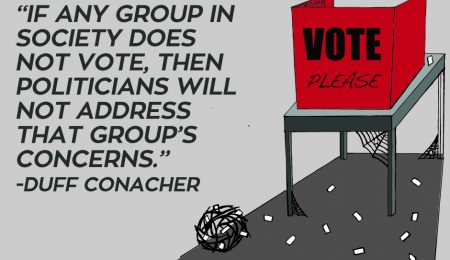Shorter work days can increase productivity, decrease depression
In today’s fast-paced world, companies are trying to squeeze every ounce of productivity out of their workforce. At the same time, employees are trying to maintain the closest semblance of a healthy work-life balance. The solution to this problem has been right under our noses the whole time—people should work less.
Let me explain.
Scandinavian countries have been experimenting with this concept for a few years. A recent study of Swedish firms found that when workdays were only six hours long, productivity and worker satisfaction improved, while turnover dropped.
But wait, where did our eight-hour work day come from in the first place? Isn’t it a tried and tested formula that’s a guarantee for success? Well, this practice started during the industrial revolution as an attempt to bargain with companies who often wanted 10 to 16 hour days. Hardly a scientific decision based on productivity.
One might argue that a six-hour workday would take away time from necessary functions, like meetings. However, you can also argue that it would take time away from less important functions—like meetings—and force workers to get the most important stuff done more effectively.
Not only that, it would also give employees more time between shifts to fully recover, and be ready and productive the following day.
And it goes deeper than that. Although it seems like a no brainer, studies have shown that longer work hours have been linked to depression.
This is only more reason to continue to research the benefits of a six-hour workday, and implement it if the experiment produces positive results.
If we’re going to accept the idea that shorter work days can be more effective, then there are some mindsets we need to dispose of first. If we brand people as “slackers” for working fewer hours without measuring whether or not the practice is effective, we’re not helping anyone.
The biggest driver of such a change would be people newly joining the workforce—graduates from the U of O, perhaps—without the prior conviction that a workday must be eight hours. As people gradually move up the ladder, such ideas can move with them.
Some companies are already showing such attitudes in other ways, and are reaping the benefits because of it.
Many modern companies, most famously tech companies, are making efforts to increase their workers’ productivity. Free meals, go karts in the office, and napping areas are among the many ways modern, successful companies are trying to make their employees more effective in unconventional ways. This is true for Google in the states, and for Shopify here in Ottawa.
But why should it be six hours? Because a study is showing it works well? The important thing to do is study the effectiveness of the number of hours, not to take “eight hours” or “six hours” as gospel.
At a time when Canada is trying to poise itself as a leader in the world’s economy, we can’t allow old assumptions and outdated attitudes to hold us back.








